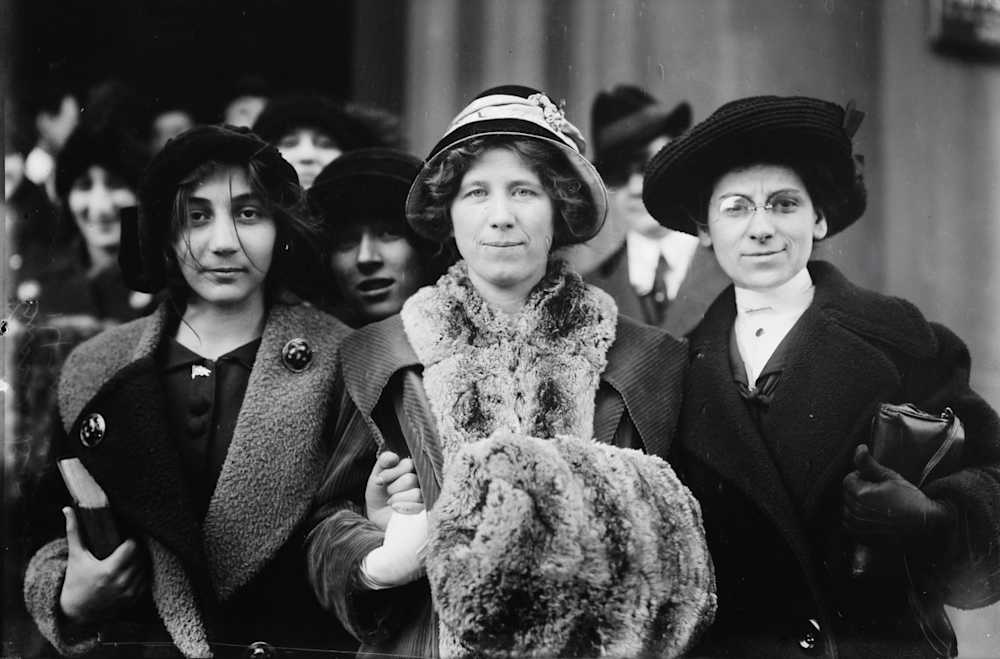The right to vote: a milestone on the way to equality

The right to vote is precious, as history reveals. And it is an important step to equality, but there is still plenty of work to be done.
As I moved to Switzerland and started my studies in International Affairs & Governance, I took a deep dive into the country’s history, politics and culture. I was eager to learn more about the Swiss direct democracy and I was puzzled about its Federal Council of seven members. I came across the curious fact that Switzerland was one of the last countries in Europe to grant women the right to vote. That was in 1971, over half a century after the United States. Today, women can vote in every country in the world that runs elections. Working with impact investments, I am glad to see the progress and increasing awareness around gender equality. But the more data I see, the more I realize how far away from full equality we still are.
The year 2020 is an important year for gender equality in the United States. It is the 100th anniversary of the ratification of the 19th amendment to the Constitution, which granted American women the right to vote. The battle for the amendment lasted more than 70 years, beginning with its launch at the Seneca Falls Convention. It is interesting to think that among a dozen resolutions passed by the Convention, women’s right to vote was the only one that was not unanimous. In fact, it was highly controversial at the time, and even subject to mockery.
In the decades that followed, women suffragists faced strong resistance, often enduring verbal and physical abuse as they wrote, marched, petitioned, went to court and even on hunger strikes to push for change. Not only women but also men were actively engaged in promoting the expansion of equality and liberty for themselves and their fellow citizens. Many activists were advocating for both women’s rights and the abolition of slavery, two movements which were strongly connected. At the time of the 1848 Convention, voting rights were exclusive to white men who were at least 21 years old and who owned land. Racial barriers to vote were only eliminated in 1870, although discriminatory practices still prevented many men from executing their right, and native Americans had to wait until 1924 to vote.

Women suffragists picketing in front of the White house
The right to vote is considered one of the most basic rights of a citizen, and it was a major victory for American women. However, women’s full equality under the law was (and is) still not recognized. And that is why, in 1923, the suffragist leader Alice Paul proposed the Equal Rights Amendment (ERA), which would guarantee equality of rights for all American citizens, regardless of gender. Nearly 50 years later, the ERA was passed by both chambers of Congress. But don’t celebrate yet: to become an amendment, the ERA had to be ratified by 38 states before the deadline imposed by Congress (and the extension that followed) – which it never did. It is ironically sad that the ERA was defeated largely due to the efforts of a woman – the conservative activist Phyllis Schlafly. She believed that the amendment posed a risk of moral decline and a threat to the protection of housewives and mothers’ privileges, and started the STOP ERA movement, a story that is recounted by the Emmy-nominated miniseries “Mrs. America” with Cate Blanchett.
In more recent times, the adoption of the ERA has gained renewed interest with the #MeToo movement and the fourth wave of feminism. And finally, earlier this year, Virginia became the 38th state to ratify the amendment, and the House of Representatives passed a resolution to eliminate the ratification deadline. Now it is pending, as the Senate needs to do the same. You might be wondering why the ERA is even relevant today. Afterall, many forms of sex discrimination are already covered under new laws and the Supreme Court had already been persuaded by young Ruth Bader Ginsburg in 1971 to extend the equal protection clause of the 14th Amendment to women. But important discriminatory gaps still remain, especially in the areas of sexual harassment and equal pay.
The recognition of women’s full equality is long overdue and is becoming ever more important in the workplace and in investment considerations. At responsAbility we are taking steps to reinforce an inclusive corporate culture and to introduce gender criteria to our investment decisions. Our Gender & Diversity Advisory Group is closely monitoring key metrics to evaluate and ensure diversity, equity and inclusion at the corporate level. Outside our doors, we are proudly reaching nearly 45 million women in emerging markets under our Financial Inclusion initiatives and incorporating gender-lens investing processes into our offerings. Our energy access fund is now seeking accreditation by the 2X Challenge, a call for action to mobilize commitments that provide women in developing countries with improved access to leadership opportunities, quality employment, finance, enterprise support and products and services that enhance economic participation and access. In addition, we are increasing our efforts with Technical Assistance projects to build the capacity and knowledge of our investees in gender and diversity best practices.
Each of us, men and women, are agents of change in our countries, in our communities, in our companies, in our inner circle. Start by being aware that we are not yet fully equal as citizens, and support and demand the necessary changes. Finally, make sure to use one of the most precious of all rights: go vote!

Carolina De Azevedo
Carolina de Azevedo has over ten years of experience in the financial sector in Europe and Latin America. In her current role as Senior Manager at responsAbility she is responsible for business development activities with Development Finance Institutions worldwide, as well as foundations and impact investors in the US and UK. Previously she worked in different sales and trading roles in Corporate & Investment Banking. Her passion for sustainability and development finance led her to transition into a career in Impact Investing, in which she encountered a strong sense of purpose and motivation. Carolina holds a bachelor’s degree in Business by Insper São Paulo - Brazil, and a Master’s degree in International Affairs by the University of St. Gallen - Switzerland, with a Master’s thesis on Blended Finance.